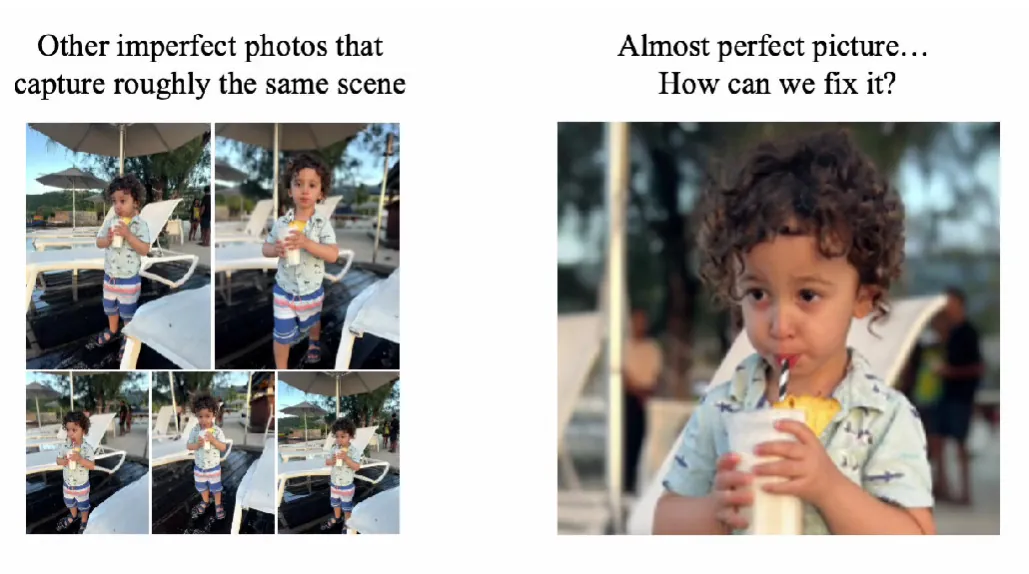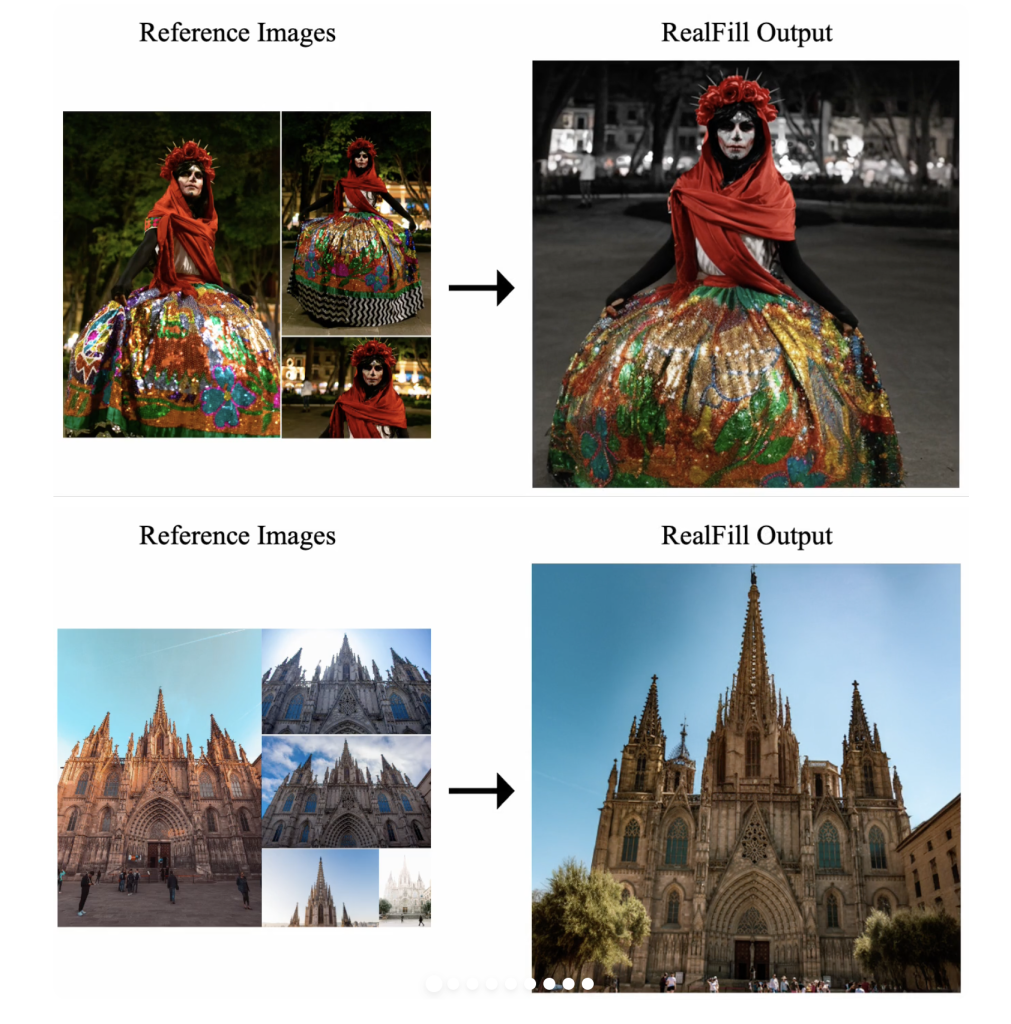AI is now everywhere in our lives and most of the tech companies are introducing their AI-based products. In a new trademark that Google applied for, the European Union Intellectual Property Office (EUIPO) and the US Patent and Trade Office (USPTO) revealed that they are working on a project called “RealFill”.
AI needs more of your images to give better results
Android Authority team points out that RealFill won’t be a downloadable software; similar to Google‘s Magic Editor in Pixel phones, all your edits are actually not processed on-device but made on Google’s own servers.
This future AI feature is essentially similar to Adobe’s “Generative Fill” feature, although Google appears to be trying to get rid of any imperfections in photos. With RealFill, users will be able to generate entirely new image by using five previously taken photos as a base. You will somewhat train the AI algorithm with your previously taken 5 different images, and then the AI will apply the image expansion on your target image.


Google’s AI algorithm in development aims to create a more accurate image expansion with the different images users provide. Thus, instead of creating random objects unexpectedly during the expand process, the algorithm will generate much more realistic images by referencing users’ base images.

RealFill hasn’t been publicly released yet, but it comes with some limitations. Unwanted outcomes could appear in the final image if there are significant differences between the target image and the images used as references that the user provided. It is obvious from the shared RealFill demos that the base photos are extremely similar to one another; in fact, we could say that they are just different angles on the same scene. You can visit RealFill website to see more.
Currently, there are many image expansion solutions available powered by AI, although they sometimes work well, most of the time they can result in a disappointment. It’s unknown when Google will release RealFill to the public; perhaps we might see this feature in the Pixel 9 series, but for now, everything is very unclear.
Related:
- After renders, Pixel 8a leaks in promo materials with seven years of update
- Google Pixel 8a Leaked Official Promo Video Reveals Its AI Features
- Pixel 9 Pro leaks in real-life for the first time: Check out the design…
- Google Pixel 9 Pro Fold is the name of Google’s upcoming foldable, claims report
- Google Pixel 9 series to get satellite communication with Samsung modem






